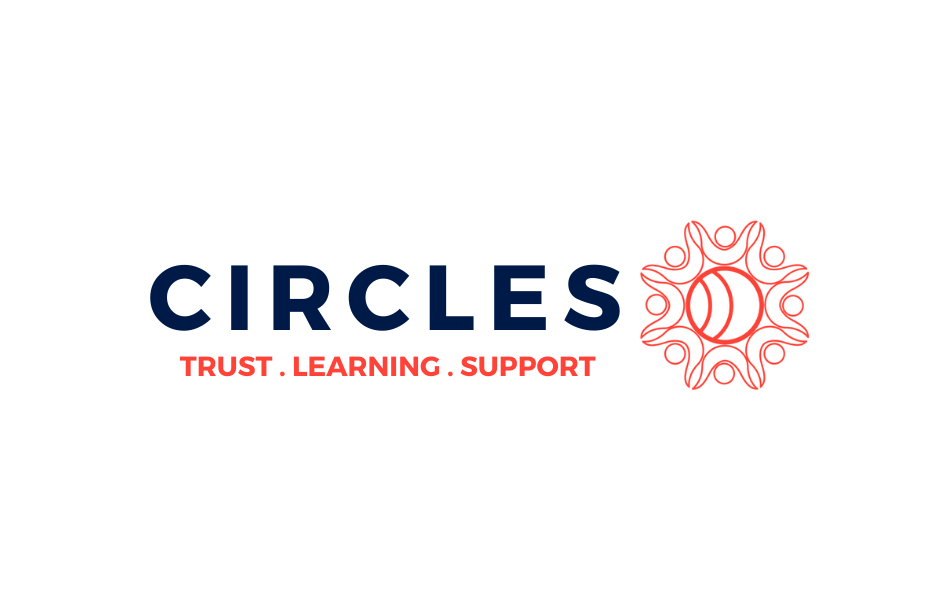Key Job Search Strategies for Social Sector Communications Professionals: Notes from ComNetworkNY Virtual Event January 2025
Amel Alyamani
Surdna Foundation
Jessie Landerman
Everyday Democracy
Renee Karibi-Whyte
Kate Emmons
TCC Group
Michelle Lanchart
Rising Impact
Margaret Doyle
Aliada Global
Nick Obourn
Fiona Guthrie
Innocence Project
Christiaan Perez
Hispanic Federation
In late January, ComNetworkNY, a LOCAL group of The Communications Network, hosted a virtual event focused on career growth, featuring the following professionals:
Stela Lupushor, a thought leader, speaker, and educator on a mission to humanize the workplace.
Ify Walker, the founder and CEO of Offor, a pioneering talent brokering firm that has helped countless founders, CEOs, and boards build high-performing teams aligned with their growth and values.
Beth Kitzinger, co-lead of the Mission-Driven practice at Chaloner, a national executive recruiting firm focused exclusively on communications and marketing search.
The ComNetworkNY Leadership Team compiled the following resources from the session.
The communications job market is shifting rapidly. Economic uncertainty, AI, and hiring trends are creating both challenges and opportunities. To stand out and secure your next role—whether in-house, freelance, or fractional—you need a targeted, strategic approach that reflects the mission-driven nature of our sector.
Here’s what social sector communications professionals need to know, with specific, actionable strategies to get hired.
1. The Social Sector Job Market: What’s Changing?
Hiring is cautious, but opportunities exist. Organizations are posting roles but taking longer to hire due to budget constraints and uncertainty.
Skills-based hiring is rising. Foundations, nonprofits, and social enterprises are prioritizing specific competencies over job titles.
AI is disrupting hiring but not replacing humans. Communications teams still need authentic storytelling, strategic thinking, and audience engagement.
Action Step: Position yourself as a specialist. Be clear about what kind of communications work you excel at (e.g., brand messaging, crisis comms, stakeholder engagement, thought leadership).
2. How to Land Your Next Social Sector Role (Hint: Stop Mass-Applying)
Most job postings get 500+ applications. Social sector hiring managers rely on referrals to cut through the volume.
"Easy Apply" on LinkedIn is working against you. Many applicants click "Apply" without customizing their materials—causing hiring managers to ignore generic applications.
Hiring managers and recruiters talk. Social sector comms is a small world. Your reputation and connections matter more than your resume.
Action Step: Prioritize networking over applying. Make a list of 10-15 organizations you admire. Reach out to comms professionals working there for insights—not just job leads. A conversation today can be your referral tomorrow.
3. Writing Matters: Cover Letters & Applications
Cover Letter or No Cover Letter?
Some organizations (especially foundations, advocacy groups, and comms agencies) require cover letters.
Others (larger nonprofits, social enterprises) skip them entirely and replace them with application questions.
Comms hiring managers expect strong writing. If your cover letter is generic, AI-generated, or vague, it’s a red flag—especially in mission-driven communications.
Action Step: Use this formula for your cover letter:
Start with their mission. Show you understand their work.
Connect your experience. Share a relevant project and impact.
Show your value. What unique skillset will you bring to advance their mission?
Pro tip: Many hiring managers scan cover letters last—so make your first sentence compelling.
4. AI & Your Job Search: Use It Wisely
AI pre-screens candidates. Many organizations use resume-screening software (ATS), so keywords matter.
AI-generated applications lack personality. If your materials feel flat, hiring managers will notice.
AI is great for research. Use it to analyze job descriptions, draft networking messages, and identify hidden opportunities—but never submit raw AI-generated content.
Action Step: Use AI for prep, not applications.
Don’t: Copy/paste AI-generated resumes or cover letters.
Do: Use AI to identify trends, company priorities, and industry language to tailor your applications.
5. Where to Find Social Sector Comms Jobs
Beyond LinkedIn, check:
ComNetwork Job Board – Top roles in philanthropy & nonprofit comms.
Idealist.org – Broad range of social impact jobs.
The Impact Job – Curated social sector opportunities.
Virtual Chiefs of Staff – Great for fractional comms roles.
Your Alumni & Professional Network – Most jobs in our sector aren’t posted widely—networking fills the gap.
Action Step: Set up job alerts on sector-specific platforms.
6. Want Freelance or Fractional Work? This is How You Stand Out
If you are not full time employed currently, consider freelance or fractional work.
Organizations need comms support between full-time hires—but they prefer to hire from their networks.
Low-cost overseas competition exists—so you must differentiate yourself.
The most successful fractional communicators add value first before pitching services.
Action Step: Offer a free strategic insight to prove your expertise.
Example: “I noticed your website’s donor messaging could be stronger—here are three quick wins to improve clarity.”
Pro Tip: Have a simple, one-page website with your portfolio and contact info. Hiring managers want to see your work instantly.
7. Essential Skills for Social Sector Communicators Right Now
Mission-Driven Storytelling – Translating impact into compelling narratives.
Stakeholder Engagement – Messaging that resonates with donors, board members, policymakers, and the public.
AI & Digital Fluency – Understanding how AI affects content creation and audience engagement.
Crisis & Reputation Management – Many nonprofits face public scrutiny. Your ability to navigate this is a major asset.
Internal Communications – Employees and stakeholders want transparency—comms pros are key to keeping them engaged.
Action Step: Assess your skills. Are you fluent in AI tools? Skilled in donor messaging? Strong in crisis comms? Highlight these in your job search.
8. Three Final Strategies to Get Hired Faster
"It’s Not About You." Many social sector hiring processes are slow—not because you aren’t qualified, but because budgets, approvals, and priorities shift. Stay patient.
"Don’t Give Up." The right job is out there. If you aren’t getting traction, rework your networking strategy.
"Add Value First." Whether networking, freelancing, or job hunting—demonstrate your expertise before asking for opportunities.
Looking for a New Role? Take These Next Steps
Identify 10-15 mission-driven organizations you’d love to work for.
Reach out to 3-5 people in those organizations for networking conversations.
Refine your cover letter & LinkedIn profile so they reflect your expertise.
Experiment with AI—use it for research, but keep your writing personal.
Stay visible. Whether it’s thought leadership, networking, or contributing to the conversation, make sure the right people see your expertise.
Organizations in our sector need strong, strategic communicators. The hiring process might be slow, but if you focus on networking, storytelling, and demonstrating value, you’ll rise above the noise and land the right role.
Need a referral? Many social sector comms professionals are happy to connect—ask for insights first, and opportunities will follow.




